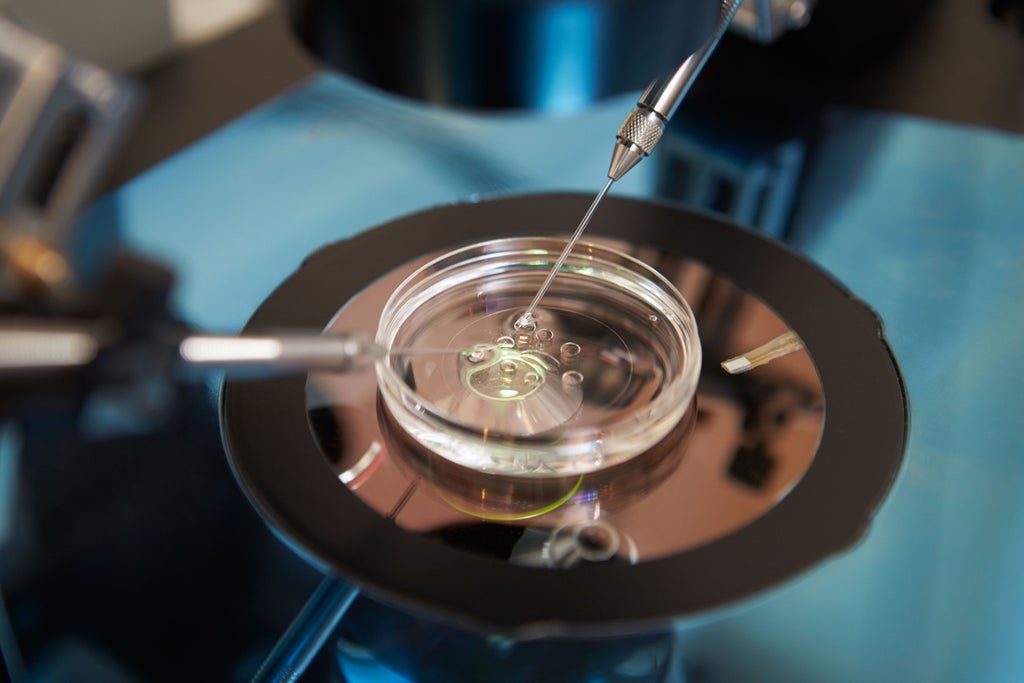
NHS patients were far more likely to suffer IVF delays during the pandemic than those paying privately, according to a new report from the regulator.
NHS fertility services were slower to reopen as the entire health service came under strain due to Covid-19, and NHS-funded treatment has lagged way behind those cycles funded privately.
The study, from the Human Fertilisation and Embryology Authority (HFEA), noted that fertility treatments were suspended across the UK on April 15 2020 after the country went into lockdown.
The next month, clinics could reopen if they could show they were Covid safe, with private fertility clinics moving to reopen faster than NHS clinics.
Some 83% of private and 34% of NHS clinics were approved to resume service by May 15 2020. Many private clinics also treat NHS patients.
The decrease in NHS-funded IVF cycles can be explained in part by the greater impact of the pandemic on the NHS as a whole
By November 2020, nearly all private and NHS clinics had approval to reopen.
However, the data shows that NHS-funded IVF treatments – whether they occurred in the NHS or private clinics – decreased 7% across the UK from 35% in 2019 to 28% in 2020.
Privately funded IVF cycles exceeded 2019 levels in July 2020, whereas NHS-funded IVF cycles had yet to reach 2019 levels by June 2021, the report said.
The reasons why NHS patients have been worse affected include the knock-on effect of general NHS delays during Covid.
“The decrease in NHS-funded IVF cycles can be explained in part by the greater impact of the pandemic on the NHS as a whole, and the slower return of NHS clinics following treatment suspensions,” the HFEA report said.
“In addition, many patients require further investigations or surgeries within the NHS where they may be experiencing higher waiting times before being able to access NHS-funded treatment or start privately funded treatment.
“Additionally, private clinics may have re-commenced services at a faster rate because of the pressures on their finances.”
The HFEA said the registration of new egg donors fell by 23% from 2019 to 2020, whereas sperm donors decreased by 14%.
People were also more likely to store embryos than before the pandemic – with a view to having treatment in the future. This activity increased by 6% from 2019 to 2020.
The report also found some patients struggled to speak to GPs before starting fertility treatment, with higher proportions of people from black and Asian and other ethnicity backgrounds reporting that this was the case.
Fertility treatment can be emotionally and physically demanding and having treatment during the pandemic would have been even more stressful
Julia Chain, chairwoman of the HFEA, said clinics followed guidelines to prioritise older patients once they reopened.
She said the HFEA expected waiting times for tests or surgery – which can delay IVF – to remain high, continuing for at least another 12 to 24 months.
She added: “Fertility treatment can be emotionally and physically demanding and having treatment during the pandemic would have been even more stressful.
“We know that this would have been a very difficult time for many patients, particularly those whose treatment was paused.”







